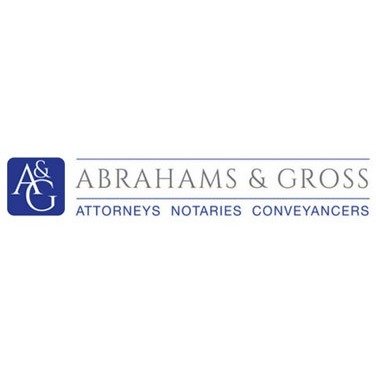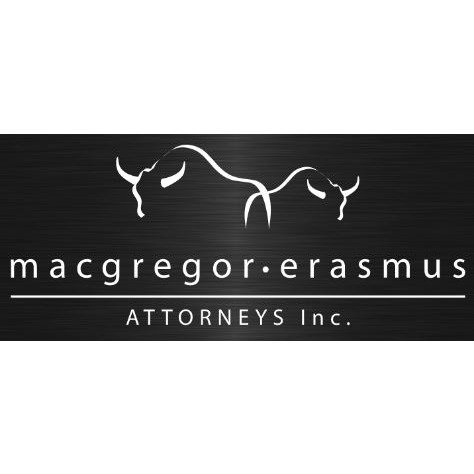Best Water Law Lawyers in Cape Town
Share your needs with us, get contacted by law firms.
Free. Takes 2 min.
List of the best lawyers in Cape Town, South Africa
About Water Law in Cape Town, South Africa
Water law in Cape Town is primarily governed by national legislation, especially the National Water Act 36 of 1998, with additional input from provincial and municipal regulations. Water law encompasses the management, allocation, use, and protection of water resources. In a water-scarce region such as Cape Town, these laws are essential to ensure sustainable and equitable distribution among domestic, agricultural, and industrial users. The law addresses rights and responsibilities related to water use, water pollution, infrastructure, and dispute resolution. Water law ensures that resources are managed in a manner that benefits public health, environmental integrity, and economic development.
Why You May Need a Lawyer
There are many situations where consulting a legal professional with water law expertise can be valuable. Common reasons include disputes over water rights or allocations, challenges with water restrictions, issues with pollution or contamination (such as industrial runoff affecting neighboring properties), legalities around drilling boreholes or using groundwater, development applications near water sources, and compliance with municipal by-laws or provincial regulations. Businesses may need advice on water licensing, while individuals and farmers may need representation in use allocation disputes or assistance with securing water for agricultural purposes. If you receive enforcement or penalty notices for alleged water law breaches, a lawyer can help you understand your rights and options.
Local Laws Overview
Key legislation relevant to water law in Cape Town includes the National Water Act, which aims to protect, use, develop, conserve, manage, and control water resources equitably and sustainably. The act introduced the concept of water as a public resource owned by the people of South Africa and managed by the state. The City of Cape Town also enforces local by-laws, such as the Water By-law which regulates water usage, restrictions, and penalties for non-compliance. Important matters include the need for licenses for water use, restrictions during drought periods, rules on borehole drilling and reporting, infrastructure maintenance, water quality standards, and water pollution offenses. Provincial authorities manage catchment areas and enforce compliance with water quality and conservation standards in cooperation with national and local government.
Frequently Asked Questions
What is the main law governing water use in Cape Town?
The principal law is the National Water Act 36 of 1998, which applies throughout South Africa including Cape Town. This act is supported by local by-laws and provincial regulations.
Who owns water resources in South Africa?
Water resources are regarded as a public resource and owned by the state, managed for the benefit of all people under the National Water Act.
Do I need a license to use water from a river or borehole?
Generally, any significant water use, such as abstracting water from rivers, dams, or drilling boreholes, requires a license from the Department of Water and Sanitation or notification to the City of Cape Town under relevant by-laws.
Can I drill a borehole on my residential property?
You may be permitted to drill a borehole, but you must notify the City of Cape Town, follow all relevant by-laws, and potentially obtain a license if the water use exceeds authorization thresholds.
What are the penalties for contravening water restrictions?
Penalties can include hefty fines, water supply throttling, or even criminal charges for serious or repeated violations, according to the Water By-law and municipal enforcement.
What should I do if I suspect water contamination affecting my property?
Report any suspected contamination to the City’s water department and consult a lawyer to understand your rights, responsibilities, and how to pursue remediation or compensation.
Are there different rules during drought periods?
Yes, the City can impose stricter water restrictions and usage limits during droughts. These are legally enforceable and often communicated through official notices or amendments to local by-laws.
What rights do I have if my neighbor’s water use negatively impacts my property?
You may have recourse through civil claims for nuisance or damages, or you can report the matter to authorities. Legal advice can help clarify your options based on specific circumstances.
How are disputes over water rights resolved?
Disputes can be resolved through negotiation, mediation, arbitration, or litigation in the courts. Specialized tribunals and water user associations may also play a role.
Where can I get more information or support?
You can reach out to government departments, legal aid centers, or environmental organizations for information and assistance. See the next section for more details.
Additional Resources
Several resources and organizations can provide information, guidance, and legal support regarding water law in Cape Town:
- Department of Water and Sanitation - national oversight of water resources
- City of Cape Town - Water and Sanitation Department for local by-laws and water restrictions
- Western Cape Provincial Government - Environmental Affairs and Development Planning
- Legal Aid South Africa - for free or affordable legal advice
- Environmental Monitoring Groups - NGOs focused on advocacy and assistance
- Water Research Commission - for research and guidance on water management
Next Steps
If you believe you require legal assistance with a water law matter in Cape Town, start by documenting your issue in detail, including any notices, correspondence, or evidence such as photographs or test results. Contact an attorney who specializes in water or environmental law for a consultation. If cost is a concern, reach out to Legal Aid South Africa or your nearest university law clinic. For urgent municipal issues such as water supply interruptions or suspected hazards, contact the City of Cape Town’s Water and Sanitation Department immediately. Understanding your rights and obligations under local laws is key, so seek tailored legal advice promptly to ensure your interests are protected and any disputes are resolved efficiently.
Lawzana helps you find the best lawyers and law firms in Cape Town through a curated and pre-screened list of qualified legal professionals. Our platform offers rankings and detailed profiles of attorneys and law firms, allowing you to compare based on practice areas, including Water Law, experience, and client feedback.
Each profile includes a description of the firm's areas of practice, client reviews, team members and partners, year of establishment, spoken languages, office locations, contact information, social media presence, and any published articles or resources. Most firms on our platform speak English and are experienced in both local and international legal matters.
Get a quote from top-rated law firms in Cape Town, South Africa — quickly, securely, and without unnecessary hassle.
Disclaimer:
The information provided on this page is for general informational purposes only and does not constitute legal advice. While we strive to ensure the accuracy and relevance of the content, legal information may change over time, and interpretations of the law can vary. You should always consult with a qualified legal professional for advice specific to your situation.
We disclaim all liability for actions taken or not taken based on the content of this page. If you believe any information is incorrect or outdated, please contact us, and we will review and update it where appropriate.
















